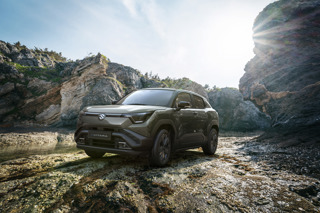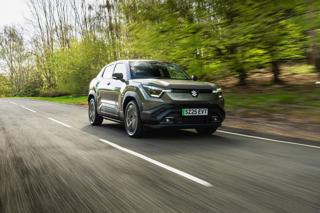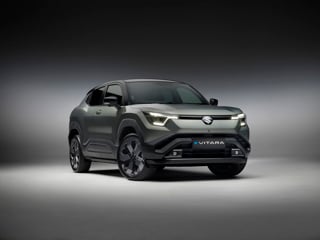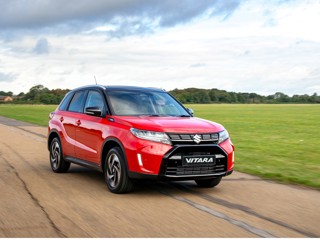Fleet industry influencers are being enlisted to help shape the way Suzuki markets its next new models in Britain.
Officials at the manufacturer are asking for opinions and advice relating to the introduction of five products over the next two years after a sports utility model suggested by the valuers proved a hit with fleets.
“Twelve months ago we were on the cusp of growing our fleet business and we arranged meetings with influencers prior to the arrival of the S-Cross,” said Suzuki GB sales and marketing director Dale Wyatt.
“They told us we should manage our residuals carefully, focus on the right mix of products and make a special version of the car available to the fleet sector.
“We paid attention to what they told us and it has paid off. Thanks to a good RV position, we’ve been able to make an attractive rental offer and more than half the 5,000-plus examples of the S-Cross we expect to sell this year will go to business users.”
The S-Cross lessons will be applied again when the Celerio city car model reaches the showrooms in February and the next-generation Vitara range goes on sale in April.
Suzuki GB has also already begun another round of discussions with the influencers over its Alto A-segment replacement. Wyatt said: “The Celerio will be more fleet-friendly than the Alto, with a cleaner emissions performance and a better benefit tax rate.”
It offers CO2 emissions of 99g/km and fuel consumption of 65.7mpg. In summer 2015, a new engine will be available with emissions of 84g/km thanks to the introduction of Suzuki’s new Dualjet engine.
“We also want it to be equipped to a level that will surprise and delight user-choosers and fleet users,” added Wyatt.
The aim is for items including alloy wheels, Bluetooth, DAB radio and USB connectors to come as standard on the entry-level version.
Wyatt continued: “It’s too early to talk about volumes, but the intention is for this to be a significant contributor to our fleet business aspirations.”
Suzuki hopes customers will be able to access the Celerio for the same monthly payment or lease cost as the Alto.
“This should work if we can achieve an RV that reflects the higher value,” Wyatt said.
However, it was awarded a three-star safety rating by Euro NCAP, ruling it out for many fleets which specify four stars or above.
“Celerio was rated three stars because of the absence of curtain airbags (not side airbags) on the base model car which will be sold in some European markets – meaning the side impact pole test wasn’t carried out as per NCAP regulations,” said Wyatt.
“This resulted in zero points for that section of the evaluation. However, Celerio did score maximum points in the side barrier impact test and also scored very highly in the front impact test.
““All UK specification cars are fitted with six airbags (driver, passenger, side and curtain) as standard equipment rather than the four as per the car that was tested. Therefore, when launched in February, the UK spec model will be at a comparable level in terms of safety to its competitors.”
Wyatt claims that research has highlighted the fact that company car drivers and salary sacrifice customers don’t want their vehicles to look like fleet models.
“We’ve found that they now prefer their cars to be more individual, so we’re confident the new Vitara will win a lot of interest because it is more design-oriented, has two-tone paintwork and will offer customisation,” he said.
The manufacturer has registered more than 90,000 vehicles over the past three years and currently has a 1.5% overall market share. Additional fleet business is expected to improve this performance to a 2% share and more than 100,000 cumulative registrations in the next three years.
To the end of Q3 this year, Suzuki registered 3,281 vehicles to fleet – a 1% share.



















Mr.Bean - 05/12/2014 12:00
Celerio was rated three stars because of the absence of curtain airbags (not side airbags) on the base model car which will be sold in some European markets – meaning the side impact pole test wasn’t carried out as per NCAP regulations,” said Wyatt. Still doesnt hide the fact it only got 3 stars. We wont be selling this product to our customers due to many contracts stating min 4 stars.